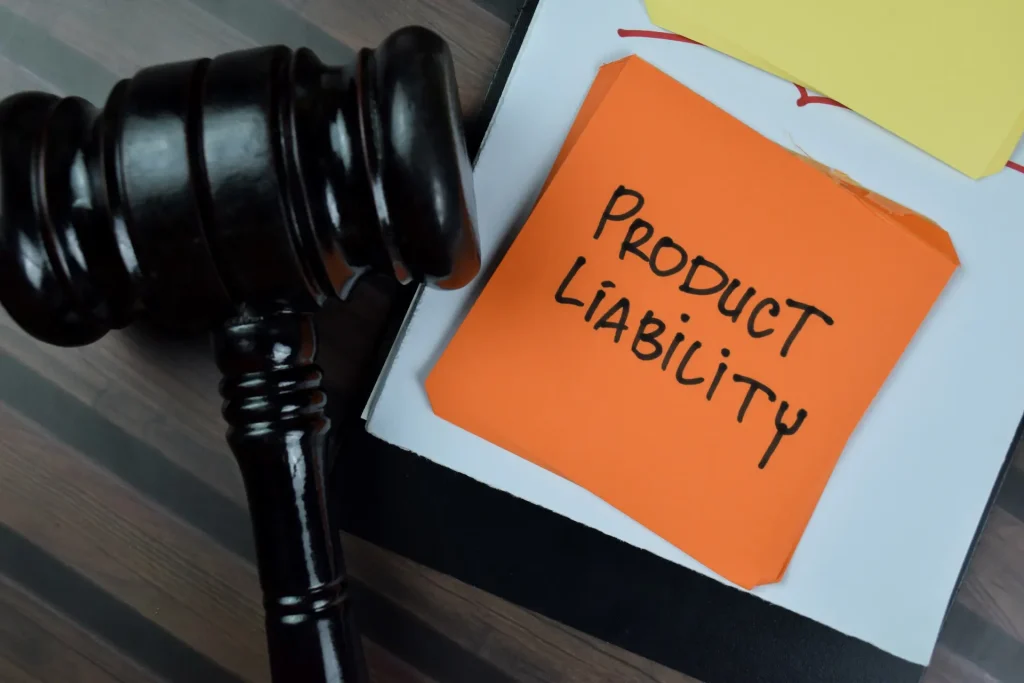What to Do With Defective Products: A Comprehensive Guide

In today’s consumer-driven marketplace, access to the vast array of products out there has never been more convenient. We tend to rely heavily on these products to simplify our lives and meet our daily needs.
Despite the manufacturer’s best intentions and strict safety standards, some products can be defective due to a mistake made along the production chain, posing a serious risk to consumers. Defective products can cause injuries, property damage, and even fatality, making it essential for manufacturers to prioritize safety and adhere to stringent industry standards.
Types of Defective Products and Their Risks
There are a few reasons why we might deem a product as defective, each presenting its own set of risks. Here are some common types of defective products and the dangers they pose:
- Manufacturing Defects: Errors or oversights during the production process could result in a product that differs from its intended design. These defects can lead to malfunctions, structural weaknesses, or even hazardous materials in the final product.
- Design Defects: Even if a product is assembled correctly, flaws in its design can make it unsafe for consumer use. These defects can stem anywhere from poor engineering, inadequate testing, or a failure to consider potential risks during the product’s development phase.
- Lack of Adequate Warning: In some cases, a product may be defective due to inadequate warnings or instructions on its packaging or labeling. Consumers may unknowingly misuse or mishandle this product, leading to accidents or injuries that could have been prevented with proper guidance.
What to Do if You Have a Defective Product
- Immediately cease using the defective product: If you suspect that a product you own is defective, it’s crucial to take immediate action to prevent further harm or damage. Your safety should be the top priority.
- Preserve the evidence: When possible, it is important to keep the defective product, along with any packaging, instructions, receipts, or other relevant documentation, in a safe place. This evidence will be crucial in building a strong case against the manufacturer or responsible party.
- Seek medical attention: In the event that you have been seriously injured by the defective product, follow up with your physician or medical provider to get examined. This will allow you to get prompt treatment and establish that your injuries were caused by the defective product, helping your case.
- Contact a Product Liability Attorney: Navigating the possibility of defective product claims can be complex and challenging, but we can help you understand your rights and pursue appropriate compensation for any damages or injuries sustained.
Legal Options for Defective Product Claims
If you have been harmed by a defective product, you may be entitled to compensation through a product liability claim, including:
- Property damage
- Medical bills
- Lost wages and income
- Pain and suffering
- Lost quality of life
Factors Considered in a Defective Product Claim
There are a couple of factors that could influence the outcome of a product liability claim, including the statute of limitations, the determination of who’s at fault within the supply chain, the extent of the damages, and your own involvement or negligence in the incident. These will all be considered when a defective product claim has been issued.
Why You Need a Lawyer for Your Defective Product Claim
While it may be tempting to handle a defective product claim on your own, seeking the assistance of an experienced product liability attorney is highly recommended due to the complexity of these cases. Here’s why:
- Complexities of Defective Product Cases: Defective product cases often involve intricate legal principles, extensive investigations, and complicated evidence-gathering processes. An attorney with experience in this area could navigate these complexities and ensure that your rights are protected.
- Identifying the Responsible Parties: Determining the party responsible for the defect can be challenging, as there could be multiple parties involved in the product’s manufacturing, distribution, and sale. This is where an attorney can conduct a thorough investigation to identify the liable party or parties and build a strong case against them.

Where We Come In: The Callahan Law Firm
Defective products pose significant risks to consumers, and it’s crucial to take prompt action if you suspect a product you own is defective. Avoid using the product by putting it in a safe place, seek legal assistance from an experienced product liability attorney, and preserve any relevant evidence. Remember, as a consumer, you have the right to seek compensation for damages or injuries caused by defective products by filing a product liability claim.
Successful product liability claims can lead to changes in manufacturing processes, improved safety standards, and more rigorous testing procedures. This can ultimately benefit all consumers by reducing the risk of defective products reaching the market in the future. Be a voice for the good of all.
Our team of experienced product liability attorneys at The Callahan Law Firm can guide you through the complexities of defective product cases and ensure that your rights are protected. Contact us today to schedule a no-fee consultation and begin the process of getting the compensation that you deserve.
FAQ’s
What to do with defective products?
If you suspect a product is defective, stop using it immediately and contact the manufacturer or retailer for further guidance. Preserve the product and any relevant documentation, and consider seeking legal assistance from an experienced product liability attorney like those at The Callahan Law Firm if you have experienced damages or injuries.
What do companies do with defective products?
Companies typically have processes in place to identify and remove defective products from the market. This may involve issuing recalls, offering refunds or replacements, and implementing corrective measures to prevent future defects.
What should companies do if a product appears to be faulty?
If a company becomes aware of a potential defect in one of its products, they should immediately investigate the issue and take appropriate action to protect consumers. This may include issuing warnings, recalling the product, or implementing design or manufacturing changes to address the defect.

Michael S Callahan is an attorney and founder of The Callahan Law Firm. He focuses his practice on representing individuals and families in personal injury cases involving motor vehicle and truck accidents, workplace accidents and defective products. With over 25 years of experience, he is dedicated to fighting on behalf of people whose lives have been forever altered by the negligence and carelessness of corporations and individuals. Originally trained as a mechanical engineer, Michael has been practicing law and fighting for justice for those who need it most since 1994. He is board-certified in Personal Injury Trial Law by the Texas Board of Legal Specialization and a member of various esteemed legal associations. Outside of work, Michael enjoys spending quality time with his family, outdoor activities, and continually striving to improve as a trial lawyer and human being.











